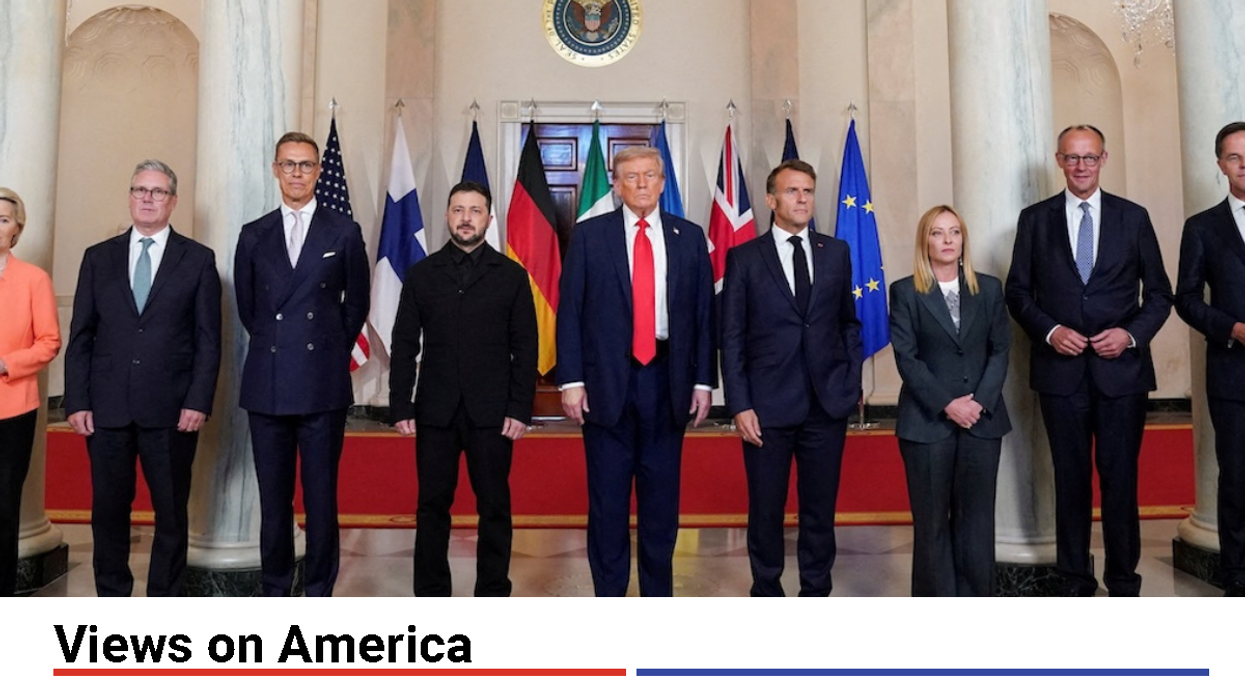Many people know a few basic facts about Marine Le Pen, head of France's far-right National Rally party. They know that she is the daughter of Jean-Marie Le Pen, founder of her party's predecessor, the National Front, known mainly for xenophobia and anti-semitism. They know that she is firmly anti-immigration and adopts a harsh view of what she calls "the rise of Islamism." Marine Le Pen has built a political identity based on these appeals.
But recently, Le Pen has tried to rebrand her image in order to win votes ahead of France's upcoming presidential elections in April 2022. What is Le Pen trying to change, and how might this impact her electoral prospects?
Policy shifts. For years, the junior Le Pen called for France to exit the European Union, arguing that ceding sovereignty to the "globalist" EU strips political power from the French working class. Having once called Europe a "prison" and vowing to hold a UK-style referendum on leaving the bloc, Le Pen has since said that she does not support Frexit: the EU should be reformed from within, she says.
In particular, Le Pen has cited the rise of right-wing European movements — like Lega in Italy and the Swedish Democrats — as proof that there is growing consensus within other European countries for the EU to adopt her ideas on curbing migration into the Union, as well as weakening the European Commission, the bloc's executive branch, which she says has acquired powers far beyond those given to it in treaties.
As part of this shift, Le Pen has also abandoned part of her populist economic agenda, saying that replacing the euro would cause too much instability — likely an effort to appeal to fiscally conservative French voters who might otherwise support the center-right Republicains.
Personal image. For years, Le Pen marketed herself as a tough, no-holds-barred politician, referring to herself as a "warrior" of sorts. But even as she prepares for the fight of her political life, it is clear that the 52-year old veteran politician is now trying to soften her image. "It's time to drop my armor," she said in one recent interview, adding: "I think I have the maturity today, to drop this toughness," before highlighting her qualities as a mother. Some analysts see this as part of a push to broaden her appeal, particularly to women and younger voters.
In tweaking her brand and positioning the National Rally as mainstream, Le Pen is also trying to court establishment center-right voters dissatisfied with the country's current trajectory. (At an event in western France, Le Pen introduced a prominent French businessman as the head of NR's ticket in regional elections, trying to appeal to other would-be defectors .)
And for now, this approach appears to be working: Le Pen is neck-and-neck in the polls with incumbent President Emmanuel Macron.
An unpopular incumbent. Le Pen's campaign is aided by the fact that she will likely face a very unpopular incumbent. Even before the pandemic, Macron's approval rating was weak (67 percent disapproved of his performance). He had lost the support of much of the left-wing flank who think he has shown too much deference to corporate interests and failed to follow through on climate mitigation efforts. This was evident when Macron's La République En Marche party got thrashed in local elections last year.
Perceptions that Macron has mishandled the pandemic have only weakened his standing with the French electorate. This helps Le Pen, who is now traveling the country and mingling with voters, while Macron is focused on reopening the economy after 14-months of painful lockdowns.
Indeed, it's possible that lack of enthusiasm for Macron's candidacy could lead to low voter turnout next year that would make it harder for him to clear the 50 percent threshold needed to secure the presidency than it was in 2017, when in the second round of voting Macron trounced his opponent… Marine Le Pen.
Once a Le Pen, always a Le Pen. Le Pen, aware she can't afford to lose her traditional voters, isn't trying to redefine her entire shtick. In April, she backed a contentious letter by retired French military officials that said "Islamism" was leading France toward a "civil war" — a view reiterated in a letter last week by active military members who wrote: "If a civil war breaks out, the army will maintain order on its own soil." Le Pen also continues to use anti-immigrant and anti-Muslim rhetoric that many say have inflamed inter-communal tensions in France.
And even if Le Pen wants voters to see her in a new light, the Le Pen brand might still be too toxic to get her into the Élysée Palace. For many French sympathetic to her views on immigration and "Islamism," memories of Jean Le Pen's racism and anti-semitism remain too much to overcome.



















